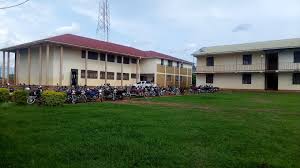
 Rapa FM Pader
Rapa FM Pader

 Rapa FM Pader
Rapa FM Pader
27 August 2025, 10:14
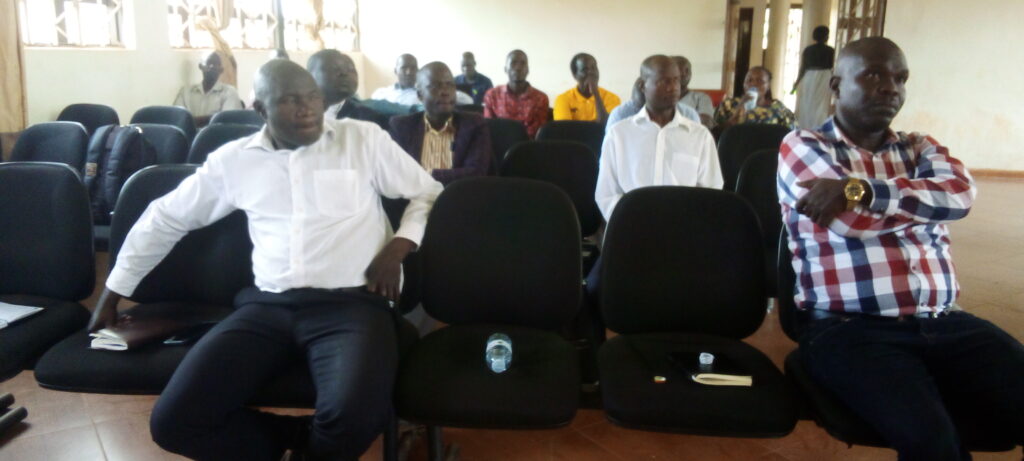
By Ekel Bonny Daniel
Leaders in Pader District have been urged to urgently address gaps in service delivery after the district ranked 99th out of 176 districts, with an overall score of 57.48%, in the 2024 Local Government Performance Assessment released by the Office of the Prime Minister (OPM).
The district performed well in health services (71.00) and water and sanitation (71.40), but recorded low scores in micro-scale irrigation (38.00) and production services (35.50).
Speaking at the dissemination meeting held in the District Council Hall, Ms Adong Susan, Deputy Chief Administrative Officer, welcomed the OPM team and acknowledged that staff shortages have been the biggest setback.
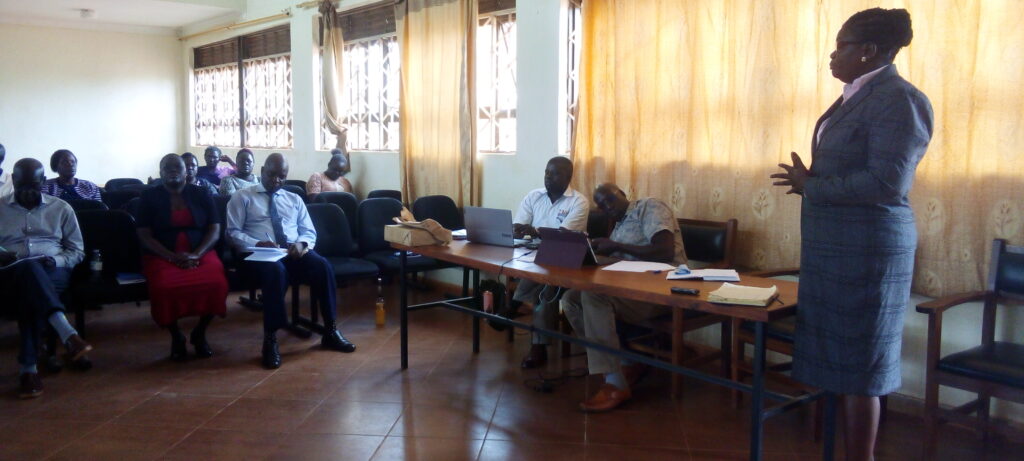
She revealed that, since 2022, Pader has struggled with vacant positions, noting that of the 23 local government units in the district, only five have substantive officers, with just three heads of department confirmed.
“This has hindered our performance, but we remain committed to learning from OPM’s guidance and improving ahead of the next assessment,” she said.
Delivering remarks on behalf of the LC5 Chairperson, Mr Okwir Charles Ray, the Secretary for Works and Technical Services thanked the OPM for presenting the findings transparently.
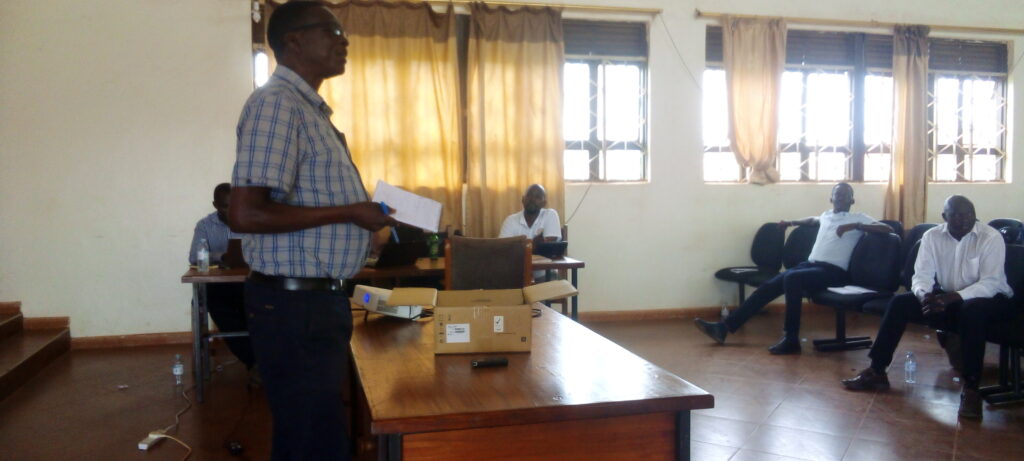
He said the results reflected the realities on the ground, highlighting weak mobilisation in projects such as micro-scale irrigation, where intended beneficiaries were not adequately reached.
Okwir attributed the poor performance to internal weaknesses, including delayed recruitment despite a wage bill of Shs 1.1 billion, and indiscipline among some staff.
“We cannot continue to indulge staff who work only three or four days a week, or headteachers who abandon their offices without accountability,” Okwir said.
He also lamented the loss of skilled officers to other districts due to the failure to fill key positions such as District Health Officer, Chief Finance Officer, and District Education Officer.
Despite these setbacks, Okwir welcomed the fact that Pader did not lose funds in the assessment, instead receiving an additional Shs 147 million, unlike some districts that suffered deductions.
He called for unity between the political and technical leadership to harmonise strategies and ensure better results in the next assessment.
Presenting the national findings, Mr Allan Olando, Senior Engineer at the OPM, reminded district leaders that they have the authority to critically review and contest results where necessary.
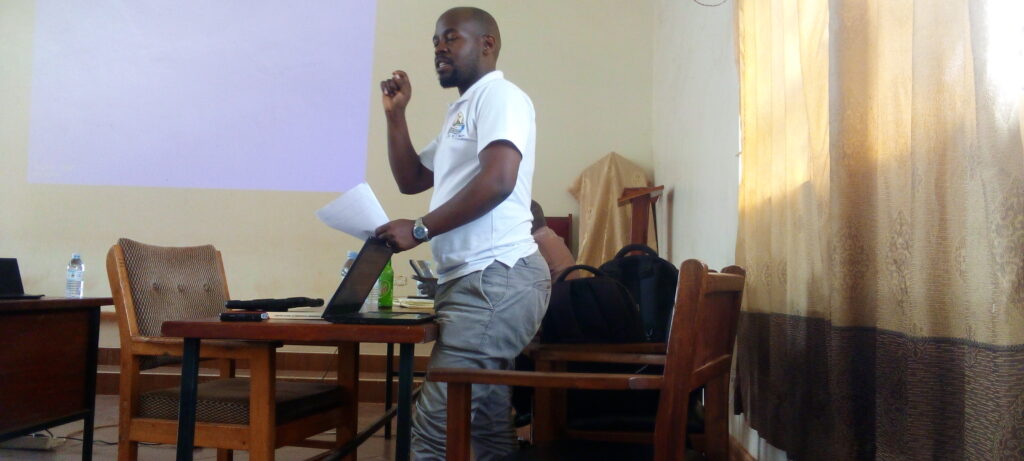
He emphasised that departments must take full responsibility for providing reports and evidence required for the assessment, citing micro-scale irrigation as an example, where accountability lies with the district’s Senior Agricultural Engineer rather than the assessors.
Olando further explained that resource allocation is guided by formulas that consider socio-economic variables, meaning targets are set in line with available resources.
He urged departments to analyse the assessment results objectively, identify failures within their control, and close gaps through administrative or capacity-building interventions.
“This process is about fairness and accountability. Departments must ensure they provide proper evidence and reports; otherwise, the gaps will continue to affect service delivery,” Olando said while submitting the report for further review.
Okello Cypriano, Monitoring and Evaluation Specialist at OPM, stressed the need for Pader to build on its strengths in health and water services while urgently addressing weaknesses in irrigation and production.
He also highlighted the importance of improving record-keeping, departmental accountability, and strategic planning to enhance future performance.
Concluding the meeting, the Deputy Resident District Commissioner (DRDC) of Pader, Augustine Omogin, urged all government officials to strictly implement the directives provided by the Office of the Prime Minister.
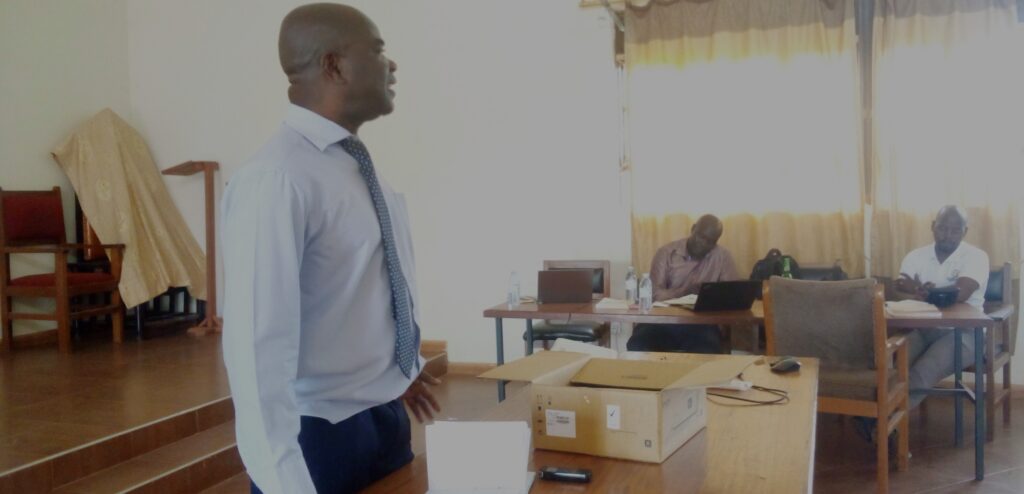
He emphasised that audit documents should guide their work and that new staff must be properly orientated to ensure continuity in service delivery.
He thanked the supervising team for their support and encouraged officials returning to the sub-counties to diligently review audit reports and serve the people faithfully, emphasising that the ultimate goal is for all services to reach the last villager in the district.